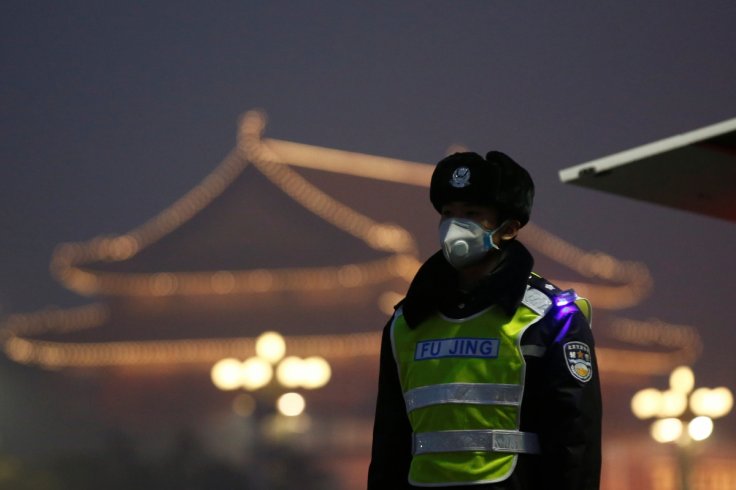People in Hong Kong planned to light candles across the city on Thursday to commemorate the bloody 1989 crackdown by Chinese troops in and around Tiananmen Square, circumventing a ban imposed on the usual public gathering because of the coronavirus pandemic.
The June 4 anniversary strikes an especially sensitive nerve in the semi-autonomous city this year after Beijing's move last month to impose national security legislation in Hong Kong, which critics fear will crush freedoms in the financial hub.
It also comes as Chinese media and some Beijing officials voiced support for protests across the United States against police brutality. The crackdown is not officially commemorated in mainland China, where the topic is taboo and any discussion heavily censored.

Tiananmen Anniversary
In Beijing, security around Tiananmen Square, a popular tourist attraction in the heart of the city, appeared to be tightened, with more police visible than on ordinary days.
In Hong Kong, an annual candlelight vigil that has been held in the city's Victoria Park for three decades to mark the crackdown usually draws tens of thousands of people. But police said this week a mass gathering would pose a threat to public health, just as the city reported its first locally transmitted coronavirus cases in weeks.
That prompted vigil organizers to call on people to "light candles everywhere" across the city instead of at 8.00 pm (1200 GMT) and observe a minute of silence shortly after. Anyone fearing illegal assembly charges was encouraged to mark the day on social media using the hashtag #6431truth, referencing the 31st anniversary along with the date.
"When authorities want to suppress us, there are more reasons to speak up," said Malissa Chan, 26.
The European Union on Wednesday urged China to allow people in both Hong Kong and Macau, its other semi-autonomous city, to commemorate the crackdown, saying it would be "a signal that key freedoms continue to be protected."
Democratically-ruled and Beijing-claimed Taiwan, where commemorations were planned throughout the day, called on China on Wednesday to apologize, a call dismissed by the mainland as "nonsense."
"In China, every year has only 364 days; one day is forgotten," Taiwan President Tsai Ing-wen wrote on her Facebook page. "I hope that in every corner of the earth there won't be any days that are disappeared again. And I wish Hong Kong well."
"POLITICAL VACCINE"
China has never provided a full accounting of the 1989 violence. The death toll given by officials days later was about 300, most of them soldiers, but rights groups and witnesses say thousands of people may have died.
The U.S. State Department said it mourned the victims and stood "with the people of China who continue to aspire to a government that protects human rights, fundamental freedoms, and basic human dignity."
There was no mention of the anniversary in Chinese state media on Thursday, but Hu Xijin, editor of the Global Times, a nationalistic tabloid published by the ruling Communist Party's People's Daily, tweeted a screenshot of the U.S. statement, with his own commentary.
"The Tiananmen incident gave Chinese society a political vaccine shot, which has enabled us to be immune to any color revolution. 31 years later, riots emerged and spread in the U.S. They only think of exporting it, but forget to prepare vaccine for themselves."
Hu did not elaborate. The term colour revolution is often used to describe peaceful uprisings in former Soviet states but it has been used to describe other popular movements.
In Hong Kong, officials have repeatedly said a ban on groups larger than eight is a public health measure with no political motivation. Police on Facebook urged people to avoid prohibited gatherings due to the coronavirus.
However, with social distancing measures allowing for religious gatherings under certain conditions, some people planned to attend churches and temples. Residents were also expected to lay flowers along a waterfront promenade, while some artists planned to stage short street theatre plays.
In the Hong Kong legislature, a debate over a controversial bill that would criminalise abuse of China's national anthem was disrupted when two pro-democracy lawmakers splashed foul-smelling liquid around in protest against the Tiananmen crackdown.
"A murderous state stinks forever. What we did today is to remind the world that we should never forgive the Chinese Communist Party for killing its own people 31 years ago," lawmaker Eddie Chu said before he was removed from the chamber.








